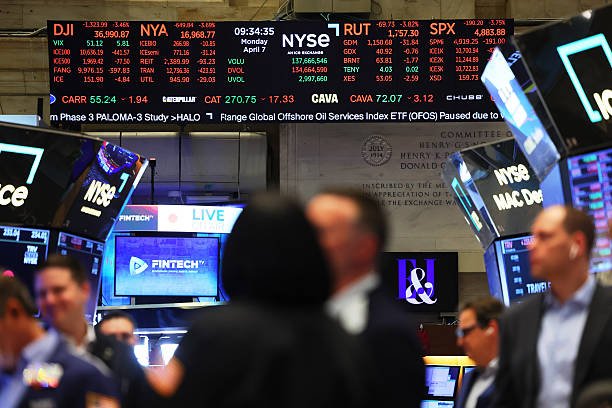US CHINA TARRIF WAR
In a significant shift in U.S. trade policy, President Donald Trump announced a 90-day suspension of most newly imposed tariffs on April 9, 2025. This decision comes after a period of escalating trade tensions that had unsettled global markets and strained international relations. While the suspension offers temporary relief to many trading partners, tariffs on Chinese goods have been markedly increased, signaling a complex and evolving stance toward China.Business Insider+2Investopedia+2Time+2Axios
Background of the Tariff Measures
Earlier in the year, the Trump administration initiated a series of tariff hikes aimed at addressing trade imbalances and concerns over intellectual property rights. In February, a 10% baseline tariff was imposed on all Chinese imports, which was subsequently raised to 20% in March. These measures prompted swift retaliation from China, including tariffs on U.S. agricultural products and energy exports. Hong Kong Free Press HKFP+3Wikipedia+3U.S. News+3
Recent Developments
The April 9 announcement introduced a 90-day pause on most new tariffs, providing a window for negotiations and easing tensions with several U.S. allies. However, the administration concurrently increased tariffs on Chinese imports to 125%, underscoring persistent challenges in U.S.-China trade relations. Business Insider+2Investopedia+2Time+2Wikipedia+3Time+3Axios+3
Market and Business Reactions
The tariff suspension was met with positive reactions from global markets. Major U.S. stock indices experienced significant gains, with the S&P 500 rising over 9%, the Nasdaq climbing 12%, and the Dow Jones Industrial Average increasing nearly 8%. Tech giants, particularly Apple, led the rebound, with Apple’s stock surging over 12% following the announcement. Hong Kong Free Press HKFP+3Axios+3Business Insider+3Investopedia
Business leaders offered varied responses. Investor Bill Ackman praised the move as a strategic negotiation tactic, encouraging China to engage diplomatically. Conversely, economist Diane Swonk expressed concerns about the record-high effective tariff rates, particularly those targeting China, and their potential long-term economic impacts. Business Insider
International Response
China’s reaction to the increased tariffs was resolute. Foreign Ministry spokesperson Lin Jian stated that China would “fight to the end” in any trade war, emphasizing the nation’s readiness to defend its economic interests. This stance reflects China’s firm position against what it perceives as economic coercion. The Guardian
Implications and Outlook
The temporary suspension of tariffs offers a potential pathway for renewed negotiations and de-escalation of trade tensions with several U.S. trading partners. However, the substantial increase in tariffs on Chinese goods highlights ongoing frictions in U.S.-China economic relations. The coming months will be critical in determining whether this pause leads to substantive agreements or if tensions will resurface, impacting global trade dynamics and economic stability.




